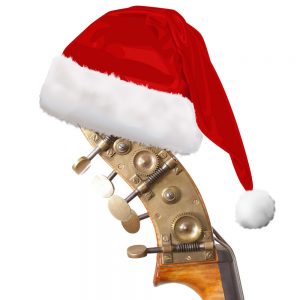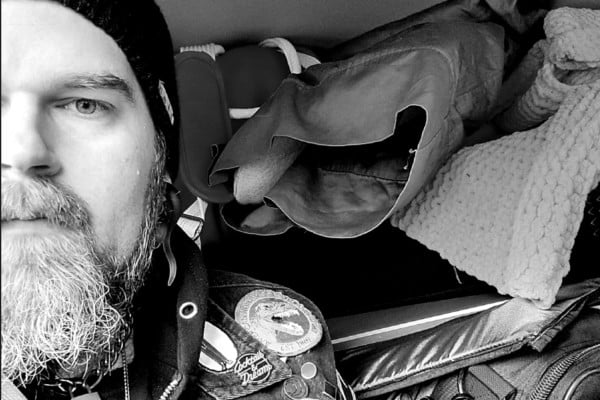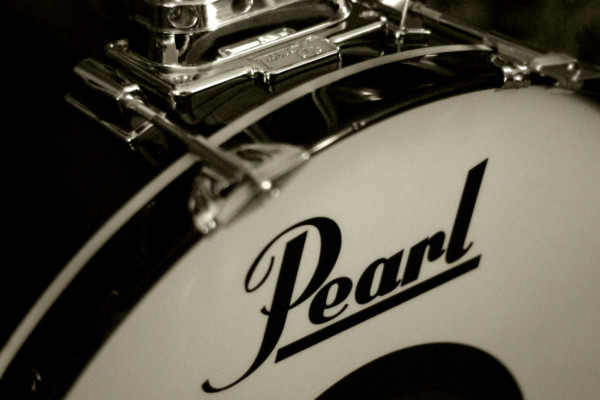Surviving the Holidays as a Freelance Bassist
 For non-musicians the winter holidays can be a time for rest, relaxation and extra time with family. For many freelance musicians, however, it is a time of early mornings, late nights, long hours playing, coffee, and lots of time in the car going from gig to gig. The upside is, of course, that it can be our most profitable time of the year. The money we make from November to January 1 of the New Year can offset the slow times, like the rest of January.
For non-musicians the winter holidays can be a time for rest, relaxation and extra time with family. For many freelance musicians, however, it is a time of early mornings, late nights, long hours playing, coffee, and lots of time in the car going from gig to gig. The upside is, of course, that it can be our most profitable time of the year. The money we make from November to January 1 of the New Year can offset the slow times, like the rest of January.
Over the years, I’ve come up with a few strategies that help me get through this profitable and tiring time with our large instrument, without too much damage to my body, my reputation or my psyche. Perhaps they can help you too.
The Quantity of Music
The amount of music a freelancer will play during this time can be enormous, and the practice time we can devote to each gig will range from limited to non-existent. Our best bet here is to be both an excellent sight-reader and a good “ear player.”
Some holiday gigs send the music in advance, but this has been the exception rather than the rule for me. That doesn’t mean all the music is easy, of course. There are some tricky passages in Mozart’s Requiem, Haydn’s Messiah or that piece by the composer you’ve never heard of that you are performing tomorrow. If you’ve played the pieces before, you are ahead of the game. If not….
If possible, it’s always good to take time to review the music in advance. It’s not always possible, however, so that’s where being an excellent sight-reader will serve you well. Even so, it’s also a good idea to show up a bit early to the gig (when you can) and use any breaks in rehearsal (if there is a rehearsal) to shed these parts…quickly.
Even if your gigs are primarily reading gigs, it pays to have an ear you can rely on. It will come in handy when someone hands you a 20 page piano score to read from, rather than an actual arrangement. In such cases the notes will also be written an octave lower than we are used to reading. A good ear can help immensely here. Good luck.
If I have any of the music in advance, I keep my entire gig folder for the season in my bass case all of the time. Better to cart around music I don’t need than to show up to the gig having forgot it on my stand at home because I was in a rush or tired (see below).
As far as sight-reading and ear playing goes, the preparation for this should have occurred throughout the year. If not, you are where you are when that gig shows up. Focus, do your best, and remember: once the note is passed, it’s on to the next one. Take the lesson and add sight-reading and ear playing to your routine in the future. This will make next season more successful.
Dress
Showing up in the wrong dress is bad form and will lead to losing work. So we should be prepared for the variety of requirements. In my experience, the dress for each gig will differ, albeit for women usually less so. A simple black dress or black pants and blouse usually suffices for most gigs. For men, however, it may “all black,” with a tie or without, with or without a jacket, white shirt, or colored shirt, a tuxedo, with tails or short coat, black tie or white tie. There are endless variations on a theme.
Since we might be playing three or four different gigs, with various dress requirements, in a single day, it’s possible we can get a bit confused when the gigs stack up. I do my best to be on target with this when the day starts, but I also keep all the variety of outfits in my car. Just in case I thought it was Tux Tails with black tie but it’s short coat and white tie, I’ve got a backup. I also keep extra bow ties and shirts in my car, in the event of a wardrobe malfunction.
Aches and Pains
Unless you have been on an Olympian practice schedule, you will play more during the holidays than is your standard fare. Not to mention the carting of the instrument (and potentially a stool) from venue to venue.
It’s helpful to be in good playing shape in advance, of course, but few things can prepare you for the 12 hours, or more, of daily playing you might have the week leading into Christmas Day. Add to this travel time in the car, loading and unloading equipment, etc. and it can take a toll on your body.
It is imperative to warmup before the first gig of the day, even if it’s for only five or ten minutes before rehearsal. It helps prepare the muscles for the marathon of gigs that is about to happen. Also, I suggest stretching in the morning, between gigs, on breaks and at the end of the day. All this will help your body weather the onslaught.
Finally, taking a moment to “cool down” at the end of the last gig of the day will also be immensely helpful. Open strings, slow scales, easy vibrato is the way to go.
Sleep
You are also likely to be sleep deprived at some point during this season, so caffeine consumption usually rises among freelancers. We need to be alert on the road, and we need to maintain our mental focus through the last note of the day.
Impossible as it may seem, try not to disrupt your sleep more than necessary (by over-caffeinating for example), as a late night may be followed by an early morning for days at a time. What sleep you can get, you will need to perform at your best. In particularly hectic times, I have been known to take a short nap in the car to keep me safe on the road and mentally proficient for the gig.
These are just a few things that have helped me make it through many a holiday season without performing poorly, forgetting music, dressing inappropriately or allowing the shock of extensive hours of playing, hours on the road and inconsistent sleep damaging my body.
What do you do? Please share in the comments.
Dr. Donovan Stokes is on the faculty of Shenandoah University-Conservatory. Visit him online at www.donovanstokes.com and check out the Bass Coalition at www.basscoalition.com.



